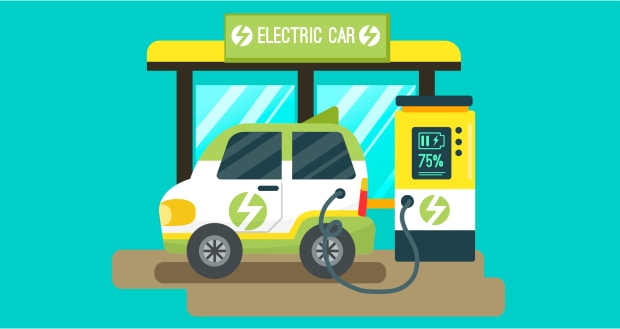What Could Affect Charging Speed?
Here are 4 factors that will make an impact on your EV’s charging speed
For those who have charged an electric vehicle (EV), have you noticed that you don’t always get the maximum charging speed? Why do we get different charging speeds on different days?
EV charging rates can be a tricky subject for some. While every EV is different, here’s a simple breakdown of the 4 factors that will most likely affect your EV’s charging speed.

1. Your Vehicle’s Battery Capacity and Limits
Different vehicle manufacturers design different batteries, which come with different capacities for charging speeds. Since the battery is usually the most expensive part of a vehicle, maximising the battery’s longevity, health and safety becomes the priority. Therefore, when a vehicle charges, the vehicle decides the power it draws from the charger in a way that maximises longevity.
Since EV batteries and chargers have different voltage and current limits, every charge must begin with a negotiation between your EV’s voltage and current limits and the charger’s voltage and current limits. After plugging in, the charger matches your battery’s voltage and delivers current. This current is limited by either your vehicle or the charger, whichever limit is lower. According to the maximum charge rate that your EV can handle, your EV will begin to charge.
So, let’s say your EV’s maximum charge rate is 100kW, the vehicle will not be able to charge any faster than 100kW when using a 150kW charge point.
2. Your Battery’s State of Charge (SoC)
The State of Charge (SoC) refers to the percentage of charge your EV’s battery has when you plug it in with a charger. Batteries charge fastest when they are nearly empty—when they have a low SoC.
EVs draw power at a higher rate when their battery charge is between 20% and 80%. However, when the battery charge falls below 20% or over 80%, the charge rate will slow down significantly. This is the vehicle’s way of protecting the battery. Therefore, if arriving at a charger with an already very high SoC, the battery will be slower to pull the additional charge.
3. Your Battery’s Temperature
The Battery Management System (BMS) in your EV is responsible for keeping an eye on your battery’s safety. To keep the battery at optimum temperature, the BMS will control the thermal management system to either heat or cool the battery.
If you have driven your EV quite some distance prior to charging it, the battery will most likely already have reached its optimal temperature and will not require any additional energy to warm up. The EV will therefore be able to extract power from the charger at a faster rate. On the contrary, if you arrive at a rapid charger after having only driven a short distance, your battery will be cooler and will so require energy to reach its optimum temperature before it can charge faster.
4. The Ambient Temperature
We’ve covered how internal battery temperatures affect your EV’s charge rate, but what about the external ambient temperature? Electric vehicle batteries don't favour extreme temperatures, be they too hot or too cold. As the charging of a battery generates heat, the Battery Management System (BMS) will also protect the battery from overheating by slowing down the charging speed.
When the ambient temperature falls between 20 and 25°C, EV batteries perform at their best; consequently, as the temperature drops, so does the battery's efficiency. This is because a portion of the incoming charge is used by the battery to produce heat before the battery is warm enough to charge, which slows down the charging process.
Likewise, your EV will use more energy to cool down its battery if it is exposed to high temperatures, which will also cause slower charging rates.
Key Takeaways:
- When charging your EV, the current is limited by either your vehicle or the charger, whichever limit is lower.
- An EV charges at a higher rate when its battery charge falls between 20% and 80%.
- An EV charges at a faster rate when its battery has already reached its optimal temperature because it does not require any additional energy to warm up.
- EV batteries operate optimally when the ambient temperature falls between 20 and 25°C.
